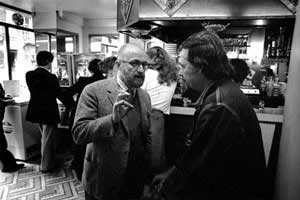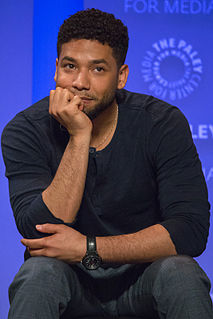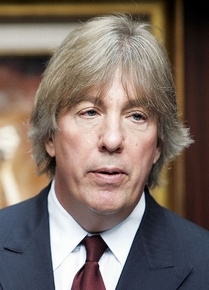A Quote by May Sarton
We have to make myths of our lives, the point being that if we do, then every grief or inexplicable seizure by weather, woe, or work can-if we discipline ourselves and think hard enough-be turned to account, be made to yield further insight into what it is to be alive, to be a human being.
Related Quotes
Being an artist and being a teacher are two conflicting things. When I paint, my work manifests the unexpected... In teaching it's just the opposite. I must account for every line, shape and colour and I am forced to give an explanation of the inexplicable and account for the variety of styles the students present.
We need a sense of the oneness of the 7 billion human beings alive today. When I meet people, I don't think about being different from them, about being Tibetan, Buddhist or even the Dalai Lama. I only think about being a human being. We all share the potential for positive and negative emotions, yet one of our special qualities is our human mind, our intelligence. If we use it well we'll be successful and happy.
Many people think of our times as being the last before the end of the world. The evidence of horror all around us makes this seem possible. But isn't that an idea of only minor importance? Doesn't every human being, no matter which era he lives in, always have to reckon with being accountable to God at any moment? Can I know whether I'll be alive tomorrow morning? A bomb could destroy all of us tonight. And then my guilt would not be one bit less than if I perished together with the arth and the stars.
If you have the insight of non-self, if you have the insight of impermanence, you should make that insight into a concentration that you keep alive throughout the day. Then what you say, what you think, and what you do will then be in the light of that wisdom and you will avoid making mistakes and creating suffering.
The 'nations,' as they are called, with whom our pretended ambassadors, secretaries, presidents, and senators profess to make treaties, are as much myths as our own. On general principles of law and reason, there are no such 'nations.' ... Our pretended treaties, then, being made with no legitimate or bona fide nations, or representatives of nations, and being made, on our part, by persons who have no legitimate authority to act for us, have intrinsically no more validity than a pretended treaty made by the Man in the Moon with the king of the Pleiades.
Sometimes you have a flash of insight, but it's not strong enough to survive. Therefore in the practice of Buddhism, samadhi is the power to maintain insight alive in every moment, so that every speech, every word, every act will bear the nature of that insight. It is a question of cleaning. And you clean better if you are surrounded by those who are practicing exactly the same.
There is such a thing as righteous judgment, but it seems that lately the word 'judgment' has become a curse word, period. The issue isn't whether or not we're insightful enough to avoid being judgmental, but whether or not we're secure enough to accept being judged. It is inevitable for every conscious human being to judge. It may spring from insight and experience and sincerity, and in such cases, it is quite beneficial on the receiving end.
If this being is omnipotent, then every occurrence, including every human action, every human thought, and every human feeling and aspiration is also His work; how is it possible to think of holding men responsible for their deeds and thoughts before such an almighty Being? In giving out punishment and rewards He would to a certain extent be passing judgment on Himself. How can this be combined with the goodness and righteousness ascribed to Him?
I consider myself a progressive, so my answer would be that we need to be progressive. For some reason the people in power in Mississippi still seem to be invested in these very American myths."The individual is alone." "We pull ourselves up by our bootstraps." "We create success for ourselves, and if we work hard enough then we will succeed and have success beyond our wildest dreams." I think that we need to do away with that kind of thinking and be more aware of history and how the history of this place bears in the present and how it affects people.







































